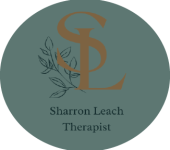Depression
Here are a few common ways which can manifest and cause difficulties for you if you are struggling with depression.
- Persistent sadness: Depression often involves a persistent feeling of sadness or emptiness that lasts for an extended period of time. This sadness may be intense and may not be easily explained by external circumstances. It can affect your overall mood and outlook on life.
- Loss of interest or pleasure: A hallmark symptom of depression is a loss of interest or pleasure in activities that were once enjoyable. Hobbies, socializing, and even basic daily tasks like self-care may become uninteresting or burdensome. This loss of motivation and enjoyment can lead to withdrawal from social interactions and a sense of isolation.
- Fatigue and low energy: Depression can cause persistent fatigue and a lack of energy, even after getting enough sleep. You may feel physically and mentally drained, making it difficult to carry out daily tasks or engage in activities you used to enjoy.
- Changes in appetite and weight: Depression can lead to changes in appetite, resulting in either significant weight loss or weight gain. You may experience a loss of appetite and have difficulty eating, while others may turn to food as a way to cope with their emotions, leading to overeating.
- Sleep disturbances: Depression can disrupt sleep patterns, leading to difficulties falling asleep, staying asleep, or experiencing restful sleep. You may experience insomnia and find yourself awake during the night, alternatively you may oversleep and struggle to get out of bed in the morning.
- Negative thinking patterns: Depression often involves negative thinking patterns, such as persistent feelings of guilt, worthlessness, or self-blame. You may have a negative perception of yourself, your abilities, and your future. You may also have difficulty concentrating, making decisions, or remembering things.
- Physical symptoms: Depression can manifest in physical symptoms, such as headaches, digestive problems, muscle aches, or chronic pain. These physical symptoms may not have a clear medical cause but can contribute to the overall distress and impairment experienced by individuals with depression.
- Suicidal thoughts: In severe cases, depression can lead to suicidal thoughts or behaviours. You may feel hopeless, trapped, or believe that life is not worth living. It is crucial to take any mention or indication of suicidal thoughts seriously and seek immediate help.
FAQ
What is therapy?
Therapy, also known as counseling or psychotherapy, is a professional relationship between a trained therapist and a client. Its goal is to help individuals overcome emotional or psychological difficulties, make positive changes in their lives.
Why should I consider therapy?
Therapy can be beneficial for various reasons, including managing mental health issues (like depression or anxiety), coping with life changes, improving relationships, and personal growth.
What happens in a therapy session?
Therapy sessions typically involve talking to the therapist about your concerns, feelings, and thoughts. The therapist may ask questions, provide insights, and suggest strategies for addressing your issues.
How long does therapy take?
The duration of therapy varies depending on individual needs and goals. Some people benefit from short-term therapy, while others may engage in therapy for several months or even years.
Is therapy confidential?
Yes, therapy is generally confidential. Therapists are bound by ethical guidelines and legal obligations to keep the information shared during sessions private. However, there are some exceptions, such as if a client poses a risk to themselves or others.
Can I benefit from therapy even if I don't have a mental health diagnosis?
Yes, therapy can be beneficial for personal growth, self-improvement, and addressing everyday life challenges, even if you don’t have a diagnosed mental health condition.
Is therapy only for individuals, or can couples and families also benefit?
Therapy is available for individuals, couples, and families. Couples therapy and family therapy can help address relationship issues, communication problems, and family dynamics.
Can I combine therapy with other treatments, like medication?
Yes, therapy can be used in conjunction with other treatments, including medication. This is known as a holistic or integrative approach to mental health care.
Get In touch
07980 734410
available from 09:00 – 20:00
Email hello@sharronleachtherapist.co.uk

